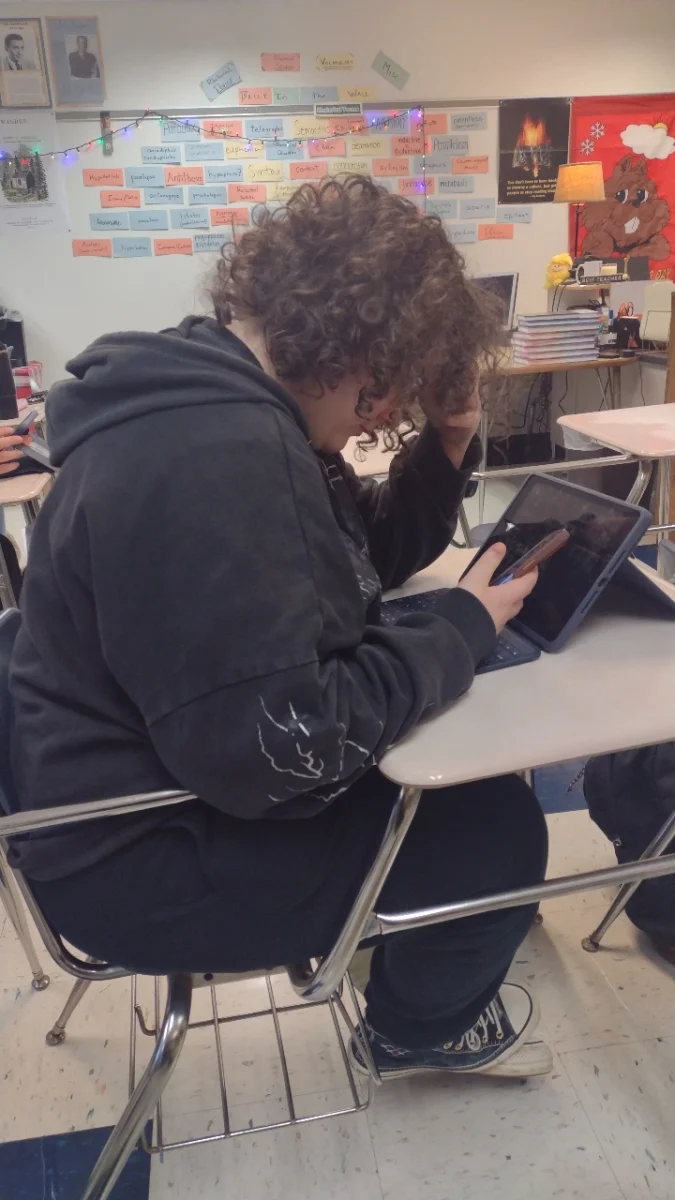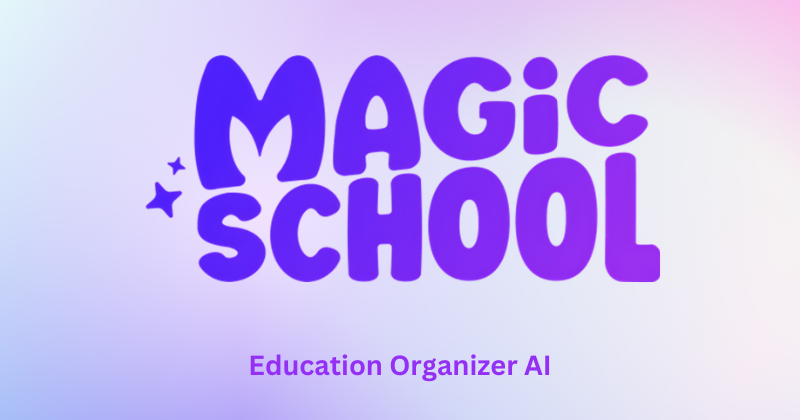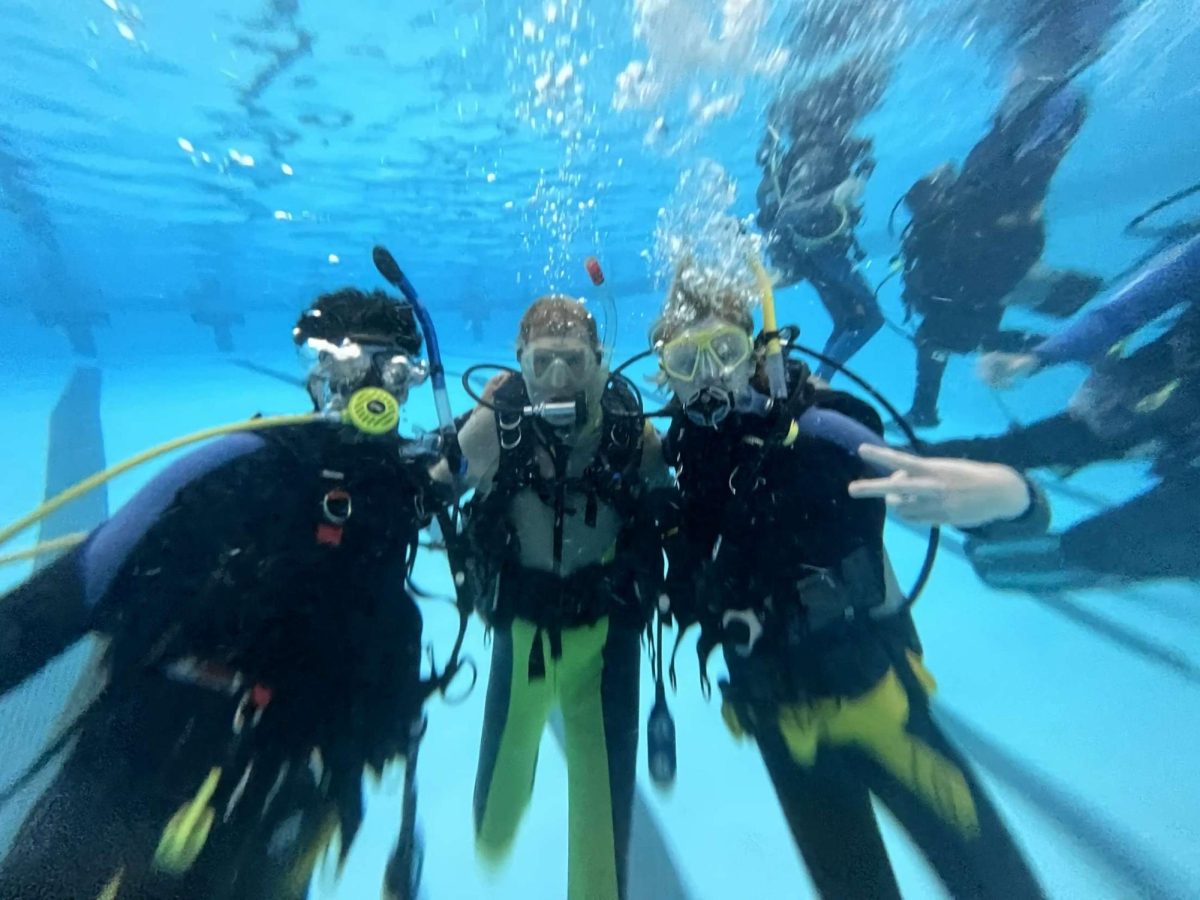Like most people in today’s world, one of the first things you probably do in the morning is check social media—you see what your friends are doing, what your favorite artists are posting…but beyond that, you also see numerous headlines and infographics and stories taking over your screen all claiming to be completely factual and trustworthy. But how do you know if they actually are?
In the age of social media and online news, media literacy skills are more important than ever for people to have—especially young people.
In a poll of 30 high school students, 57 percent of respondents said that social media is at least “somewhat dangerous” for children and teens without sufficient and applicable media literacy skills. 43 percent of respondents said that this was “very dangerous.”
Media literacy skills are the skills that people utilize to critically and successfully consume and analyze various forms of media for credibility, bias, and overall messaging. These skills include critical thinking, analysis, distinguishing fact from opinion, and identifying stereotypes and propaganda.
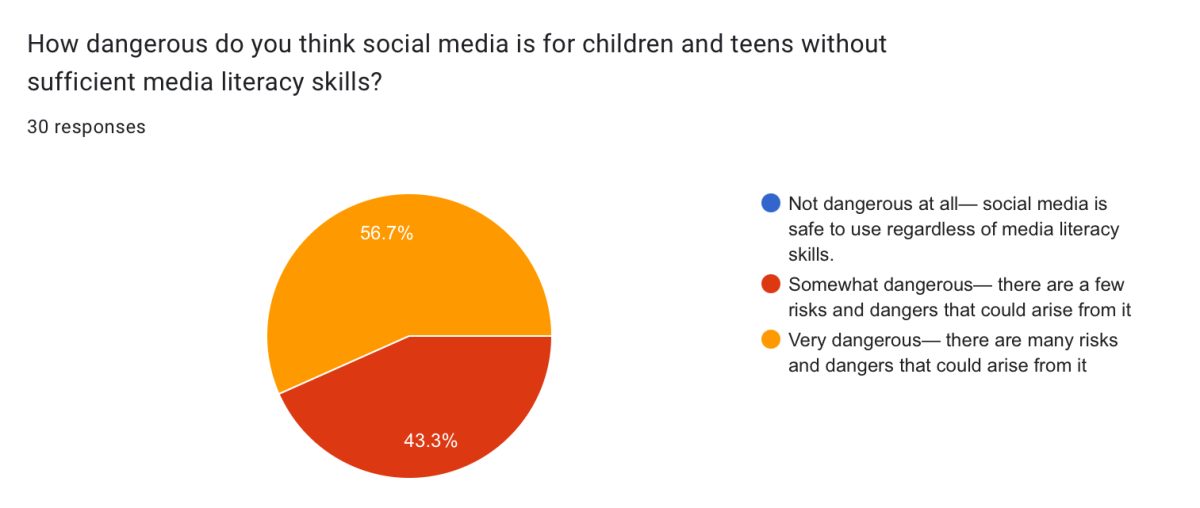
“Media literacy skills are vital for people to understand what is happening immediately around them and in the real world,” poll respondent, senior Grace Fleckenstein said. “By establishing media literacy skills—so that young people are able to identify credible information on social media— the general public will be more informed and less swayed by invalid information.”
She further adds that misinformation is one of the biggest dangers to our society, “It can ultimately lead to destruction of government, communities, etc..”
In a study published by Harvard Kennedy School Misinformation Review, 46 percent of study respondents “performed no better than a coin flip” when asked to identify fact versus opinion statements.
Similarly, only 9 of 30 high school students polled were completely confident in their ability to tell facts from opinions online.
These statistics prove to be especially alarming for young people when considering where they primarily get their news from.
In the same high school poll, a staggering 77 percent of respondents said that they mostly get their news from social media with only 12 percent saying they either get their news from a news station or newspaper.

With this, and even more concerning, 73 percent of these respondents also said that misleading headlines/blogs/etc were one of their biggest concerns when it came to young people and social media literacy.
The lack of confidence of teens in distinguishing between fact and opinion online combined with consuming news primarily on social media creates a concerning and dangerous environment for them as well as the society around them.
“The spread of false information is dangerous,” one poll respondent stated, “especially in the modern digital age when it concerns the security and rights of minorities.”
Across the 30 respondents to the poll, many of them named politics as one of their main concerns for media illiterate young people alongside fake AI-generated content and the aforementioned misleading headlines/blogs.
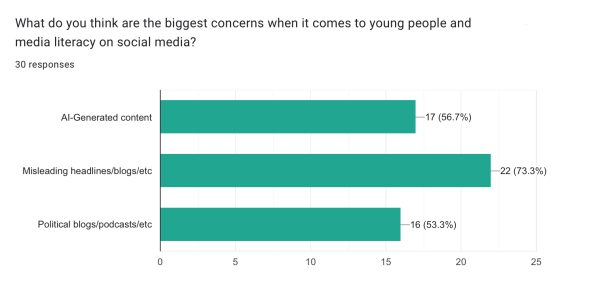
2024, being a presidential election year, was a very politically charged time on social media meaning it was vital for young current and future voters to be consuming trustworthy and factual information online.
“There is a lot of political propaganda on all parts of social media,” high school student Archer Davis commented on the Norwin poll. “With younger people gaining access to social media, it is important for them to not be fooled by these types of misinformation and have the ability to form their own educated opinions.”
Furthermore, a survey from Media Literacy Now shows that a striking 84 percent of U.S. adults aged 19-81 believe that media literacy education should be required in more states, emphasizing the importance of possessing and knowing media literacy skills and also pointing out the lack of this type of education throughout our country.
The Norwin School District is no exception to this. In a Newspaper Production poll, 57 percent of students said that they only feel that school has “somewhat” taught them useful media literacy skills such as identifying misleading headlines and finding credible sources.
“The only time I ever remember being taught about media literacy in school was at Hillcrest when we took a few days to look at some fake news articles and websites,” said one student, Liam Murphy. “After that, I was never taught about it again.”
Many other poll respondents as well as other students across the country share similar experiences, saying that they only received some general and base level information about the topic. But is this really enough?
According to the same poll, 77 percent of respondents said they had an interest in taking the time to develop more media literacy skills independently.
Given this significant figure, it is safe to say that young people do recognize the importance of developed and applicable social media skills and that it is not nearly enough to teach children only a few lessons on the topic over the course of a couple of days.
Mrs. Jennifer Boyd, a teacher at Norwin High School who teaches AP Literature and Composition, Creative Writing, and Shakespeare, also believes that students are not taught adequate and applicable media literacy skills in school
“It’s a gray area,” she said. Boyd also explains that there are “predatory tactics” that young people tend to fall prey to, causing them to become “lulled into algorithms feeding them clickbait.”
With the manipulative components of social media that Boyd speaks of, it becomes crucial for us to recognize just how dangerous a lack of social media literacy is and how vital it is to teach young people how to protect themselves in these spaces.
Peony Foster, a high school poll respondent, also recognizes this importance and how it extends beyond social media as well.
“Being able to identify fabricated or misleading content can aid students in many fields in life and avoid falling victim to propaganda.”
From the commentary and opinions of young people using social media and the adults that teach them it is clear that media literacy skills are absolutely paramount in today’s age of the internet.


